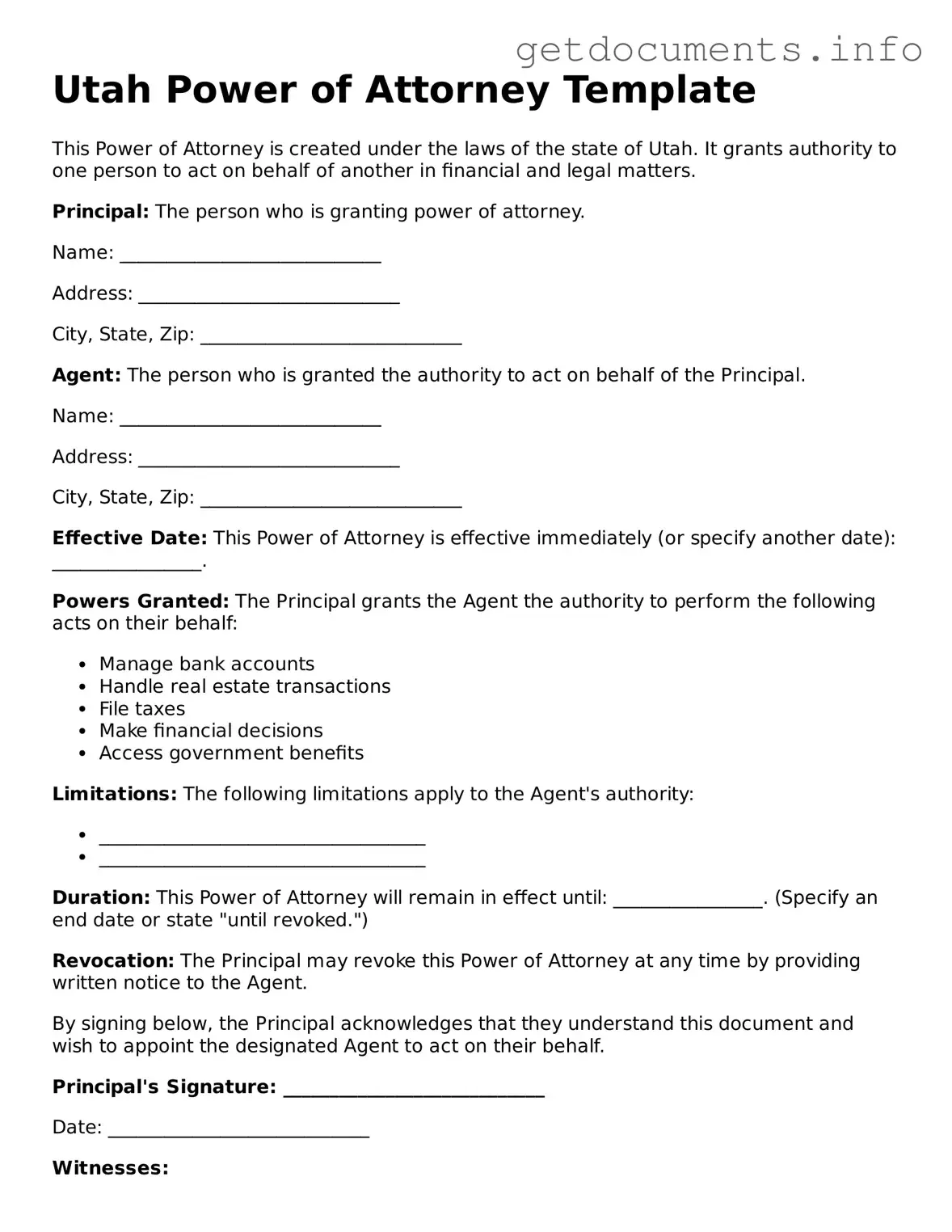Free Power of Attorney Template for Utah
A Power of Attorney form in Utah is a legal document that allows one person to grant another the authority to make decisions on their behalf. This can include financial matters, healthcare choices, and other important responsibilities. Understanding how to properly fill out this form is essential for ensuring that your wishes are honored when you are unable to make decisions yourself.
Ready to take control of your future? Fill out the Power of Attorney form by clicking the button below.
Access Power of Attorney Editor

Free Power of Attorney Template for Utah
Access Power of Attorney Editor
Got places to be? Complete the form fast
Fill out Power of Attorney online and avoid printing or scanning.
Access Power of Attorney Editor
or
⇩ PDF File
